President of Russia Vladimir Putin: Colleagues, friends, it is a pleasure to meet again with members of the Economic Council of the Franco-Russian Chamber of Commerce and Industry.
Last time, in May 2016, we had a productive discussion of the prospects for developing trade and investment cooperation and links between Russia and France. Your recommendations turned out to be very helpful and we took many of them into consideration while working in the economic field and establishing economic policy rules. For this reason, I would suggest organising our conversation in the same business-like manner and discussing issues that concern you as our partners, investors and entrepreneurs who have long been working in Russia and who are interested in continuing to do business in our country.
I would like to emphasise that we see France as one of Russia’s key partners in Europe, we intend to develop our dialogue with your country on all bilateral and international issues on a pragmatic and equal footing. We certainly pay attention to trade and economic cooperation. I would like to note that in the first 11 months of 2017 bilateral trade grew by 15 percent. France’s accumulated capital investment in Russia has reached almost $14 billion. Over 500 French companies operate in many sectors of our economy: car manufacturing, pharmaceuticals, food production, retail trade, and more.
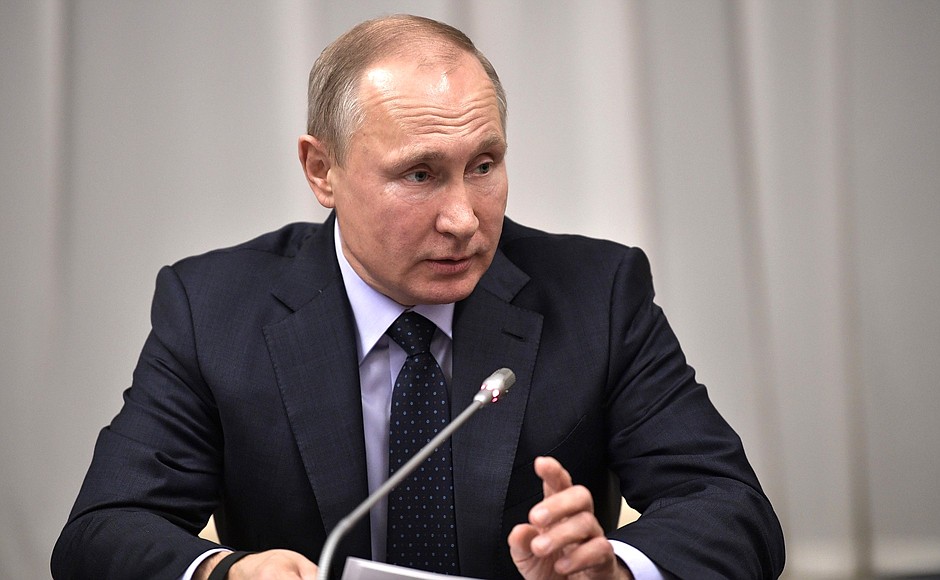
Energy cooperation has strategic importance for bilateral relations. French companies have been granted access to the Russian energy market. ENGIE plans to take part in the construction of Nord Stream 2 alongside Gazprom. Total helped build the Yamal LNG plant.
We welcome French corporations willing to set up manufacturing in Russia and place orders with our SMEs. Renault operates assembly plants in Moscow, Togliatti and Izhevsk. The retailer Auchan is investing in processing Russian agricultural produce. There are also great investment opportunities for our French partners in the innovations sector.
The Digital Economy programme was adopted in Russia with the view to improving the digital business environment. Schneider Electric is already involved in its implementation by opening R&D centres in the Skolkovo and Innopolis technology parks. We will continue supporting forward-looking projects of this kind.
We expect new trade and investment contracts to be signed at the St Petersburg International Economic Forum in May 2018. We hope to see a high-profile delegation of top corporate executives representing French manufacturers and financial institutions. We will be glad to see all of you in St Petersburg.
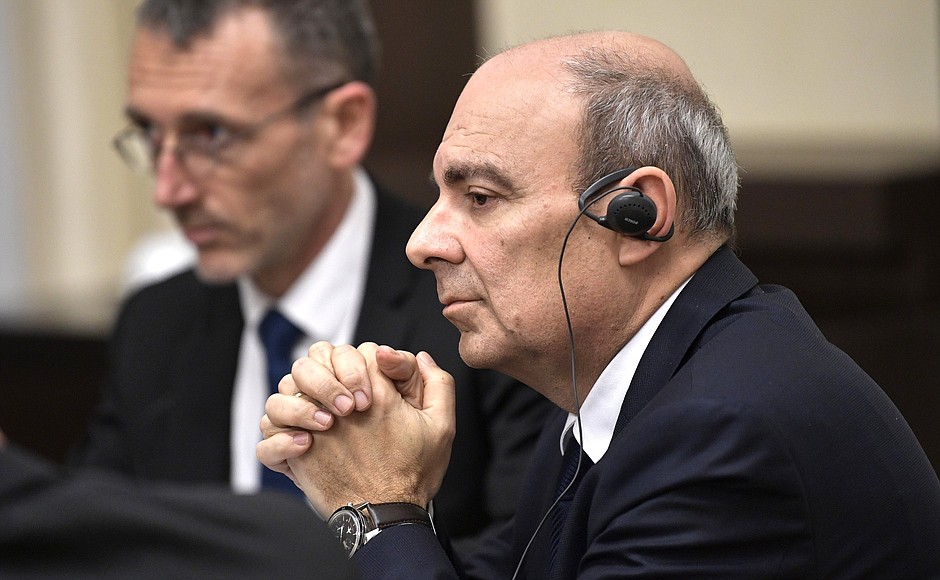
Friends, Russia is proactive in its efforts to improve macroeconomic stability. GDP increased by 1.4 percent in 2018, while the inflation rate was at its record-low of 2.5 percent. The decelerating trend is expected to spill over into 2018. Foreign trade is rapidly increasing. In January-November 2017 it surged by 25 percent. Foreign currency reserves have been growing lately, reaching 442.8 billion dollars.
Foreign direct investment in the non-financial sector in the first three quarters of 2017 amounted to 23 billion dollars, which is double the amount in the same period of 2016, and the highest result over the last four years.
We continue to work on ways to cut red tape, simplify customs procedures and expand companies’ access to loans. Thanks to these measures, Russia has risen to 35th place on the World Bank’ Ease of Doing Business Index. I would like you to note that France is ranked 31st. If we keep performing like this, we will catch up with you soon, I hope. And then working in Russia will be more comfortable than in France.
Anyway, we have moved ahead of not just all the CIS countries but also several EU states. We do care for the opinion of our foreign partners regarding our efforts to improve the business climate in Russia. Frankly, there is still much to be done in this sphere.
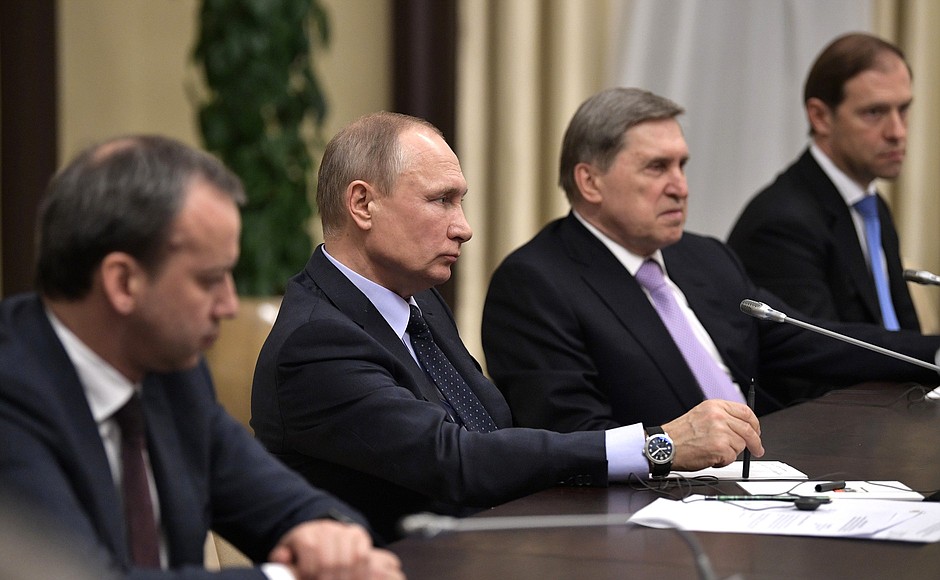
This is why I suggest that we start our discussion. But first I would like to give the floor to Gennady Timchenko, Co-chair of the Economic Council of the Franco-Russian Chamber of Commerce and Industry, and then to Emmanuel Quidet, President of the Franco-Russian Chamber of Commerce and Industry. Please.
Gennady Timchenko: Thank you, Mr President.
First of all, I would like to thank you on behalf of the Economic Council and French business leaders for this opportunity to have a second meeting with you in this format.
As the Co-chair of the Chamber’s Economic Council, I would like to provide several figures to illustrate the relations between Russia and France as well as between their business communities.
For example, there are some 1200 companies with French capital in Russia now. They are leaders on the Russian market in this sense.
As for the number of jobs created at companies with French capital, there are over 150,000 such jobs in Russia. By the way, there are representatives from Renault and AvtoVAZ here. They have over 50,000 workers. Another major company, Auchan, employs over 43,000 people. And the other companies represented here employ tens of thousands of workers.
Since 2014, for three consecutive years, French companies have been number one in terms of direct investment in Russia. You have said that the overall investment has reached 14 billion, but it is also important that French companies invest two billion or over two billion every year.
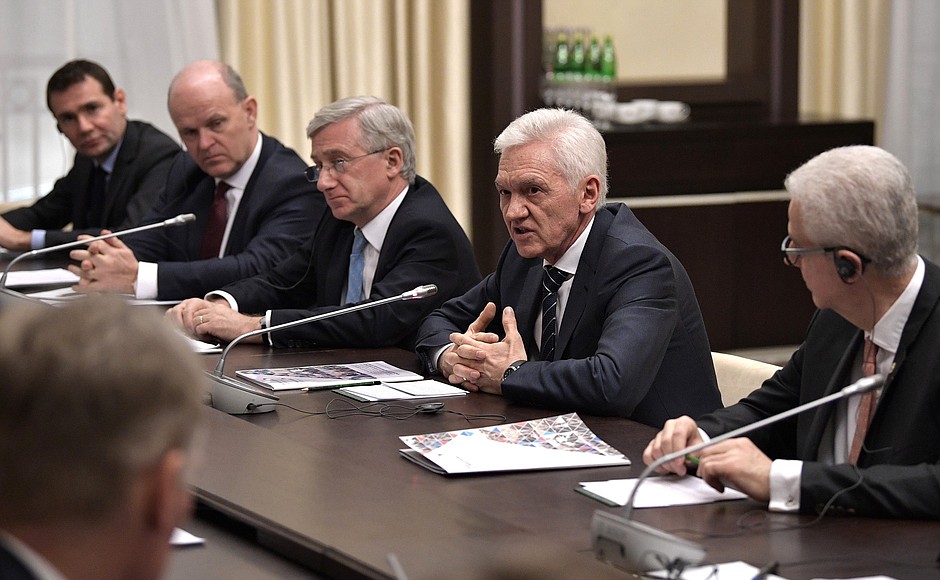
In the constantly changing economic and foreign policy environment, we see that French companies are willing to adapt, and some companies are beginning to set up enterprises and fully localise their manufacturing in Russia. Specifically, Saint-Gobain already operates nine production facilities in Russia, they are up and running, and the production has been localised.
In addition to this, these companies are beginning to export their products from Russia, which is an important trend. Cars are one such product. But there is also Sanofi, which exports insulin made in Russia, as well as cosmetic products.
These volumes are increasing by the year.
Let me highlight an important detail: the French companies have crossed a mental boundary and now invest in enterprises to the east of the Urals as well as in Russia’s Far East, which is essential for the development of this region.
I would once again like to point out the Yamal LNG project, since I was personally involved in it. Thank you so much for attending the opening ceremony. We are now in talks, including with Total, on the second construction phase and an even larger project called Arctic LNG-2. We are hard at work, and I hope that the French companies will remain proactive on the Russian market.
Thank you.
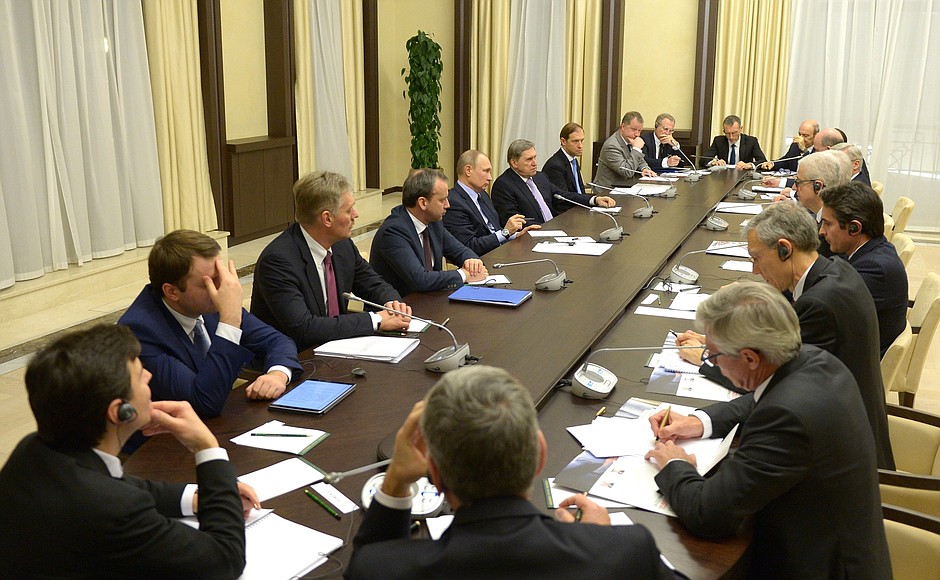
Vladimir Putin: I just had a meeting with the Prime Minister of Belgium, where we discussed ways to expand cooperation with this country. There is a project to expand the capacity of the port in order to be able to ship larger volumes from Yamal LNG. You all know very well that the shipments have begun. The first tanker has already docked in the United States.
Gennady Timchenko: Yes, the market has taken notice, but we want to keep a low profile, as we need to be cautious.
Vladimir Putin: This has already been reported by the media, and you are still cautious.
Gennady Timchenko: We are business people.
Vladimir Putin: Good for you. I am not a businessman, so I think that speaking about it would not do any harm.
Please, Mr Quidet.
Emmanuel Quidet (retranslated): Mr President, thank you for holding this meeting with us today, specifically, for finding the time to meet with French business leaders. We are also grateful to the Economic Development Ministry, the Industry Ministry together with the Foreign Ministry for organising this event.
As you said, 1,200 French companies are working in Russia and many French companies have their branches here. There are also very many French individuals who have come to Russia in order to open their companies here. There is a cultural reason for this number of French investors. No other nation is closer to France than Russia. It is said that the French are bad tempered Russians. But I think we have many more things in common than this.
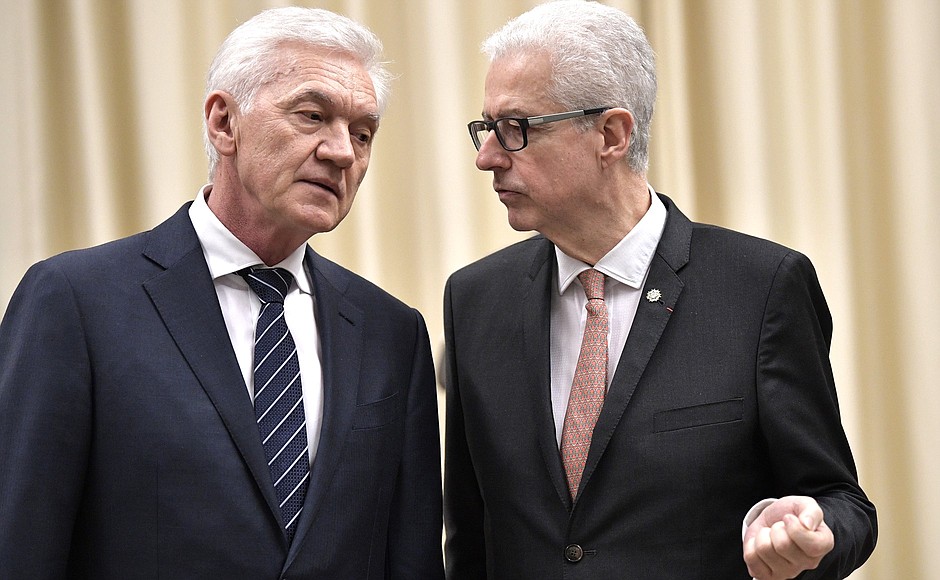
This meeting is very important to us, because it comes after your meetings with President Macron and is in keeping with the policy set out in Versailles, contacts between Russian Economic Development Minister Maxim Oreshkin and French Minister of the Economy Bruno Le Maire, as well as Mr Macron’s intention to attend the St Petersburg International Economic Forum, which, we hope, will materialise.
Of course, I will give the floor to representatives of French companies, which is our main task today. However, actually, we would like to see practical measures taken following this gathering. If possible, we would like to have a minute of your time in the future to see what has been done following this event. In fact, much has been already done thanks to our previous meeting. In other words, we will be able to move forward based on what we discuss here.
Once again, thank you very much, Mr President.
<…>